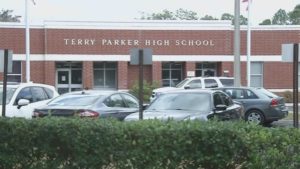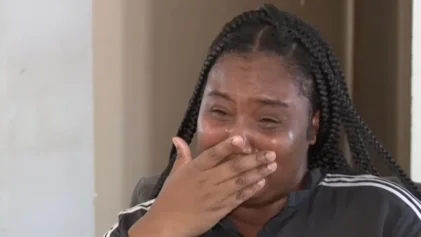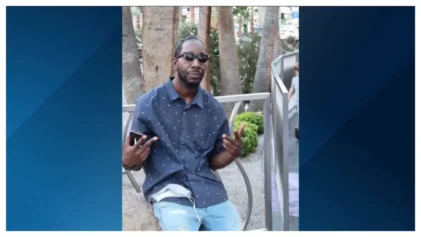
Terry Parker High School. Image courtesy of News4Jax.
Authorities were called to Terry Parker High School in Jacksonville, Florida, on Monday, Jan. 9 as several students staged a sit-in protest demanding that the school implement a full-year African-American studies course.
Students pressed school administrators to adhere to Florida’s statutes for public kindergarten through 12th-grade education, which dictates what classes must be taught, First Coast News reported. Chapter 1003.42 of the law states that the history of African-Americans is required instruction, as well as “the history of African peoples before the political conflicts that led to the development of slavery, the passage to America, the enslavement experience, abolition, and the contributions of African-Americans to society.”
Tenth-grader Angelina Roque, who helped organize the sit-in, said she protested because she and fellow classmates felt that African-American history was a subject that deserved a full year of classroom time. The Florida school currently only offers the course as a semester-long or half-year class, according to Jacksonville’s CBS 47.
Roque said the ultimate goal of the demonstration was to make school leaders “hear us, make them see us, [and] make them listen to us.” About 10 students in all took part in Monday’s protest.
“They risked being in trouble over a cause that we all truly think more people should be concerned about,” the sophomore said of her classmates.
Rashon Medlock, an educator and team leader for the Black Commission community group, defended the students during a Duval County Public School district meeting Monday night and urged administrators not to punish them for demonstrating.
“I wanted to know if they had been suspended since that was the message I got,” Medlock said. “And if they were, what was this all about? [The students] took the time to make sure it was done in a way that they would be heard, but that the message wouldn’t be lost in the action.”
At the meeting, Superintendent Dr. Nikolai Vitti said he was made aware of the protest, and assured Medlock and others that the students would not be disciplined. He added that county leaders are looking into expanding the half-year course to a full-year, full-credit course in the fall.
“I respect that students demonstrated self-advocacy and used their voice to signal concerns about their education,” Vitti said in a statement to CBS 47. “If there is student demand for a full-credit and year-long African-American history course, then we should and will provide it to students. We will work through the process of developing and offering that course.”
The county’s plans to expand the course was good news to Medlock, who asserted that Black history classes would help to increase the level of understanding and respect for African-Americans.
“Without courses like that, that level of understanding doesn’t exist,” he said.
Roque echoed Medlock’s sentiments, saying she felt that implementing the full course would help bridge the cultural gap. Now, the first step in enacting the changes is for students to put their demands in writing, which they told CBS 47 they’re working to complete.


